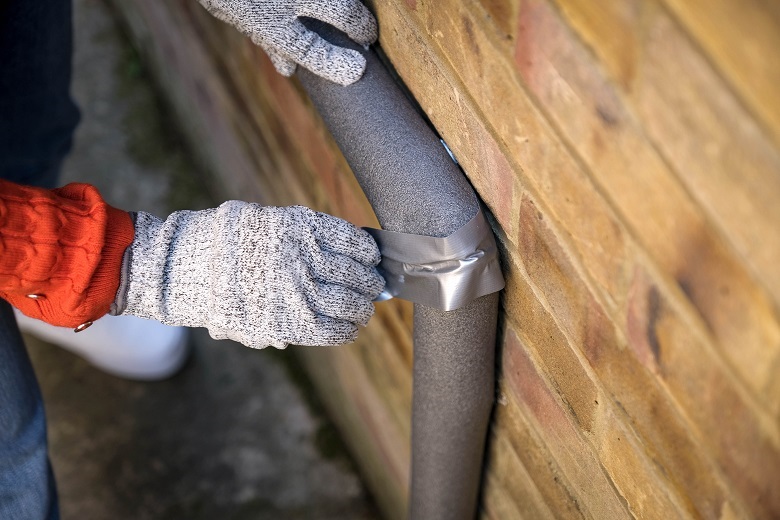Businesses closed for lockdown advised to get 'winter ready' as temperatures plunge
Thursday 7th January 2021 15:44

Lagging on pipes helps prevent bursts in cold weather
Businesses forced to close during the latest lockdown are being reminded by Thames Water to make sure internal pipes and plumbing are protected from freezing temperatures to avoid costly repairs.
With temperatures set to plummet this weekend, unoccupied buildings like offices, shops, hair and beauty salons and restaurants, which may be left empty and unheated for the next few weeks, are at greater risk of pipes bursting without action. This means that when owners and staff eventually go back to work they could be faced with flooding and expensive repair bills.
Thames Water has today shared its top 10 tips to help businesses and domestic customers prepare their properties for the big freeze, save money and avoid expensive repair bills.
Danny Leamon, Thames Water’s senior leader for water networks, said: “The last thing anyone wants in the dark winter months is a burst water pipe in their home or business. As the weather starts to get colder, there are a lot of small things we can all do to keep our properties warm and reduce the risk of pipes becoming stressed or even bursting.
"This is especially important for business premises which may be unused during the current lockdown, meaning leaks could go unnoticed for weeks on end.
“These little changes don’t just keep the water flowing where it should be: our taps, toilets and home appliances, but can also save money on heating and energy bills.”
The UK’s largest water company’s top 10 quick and simple steps are:
- Keeping the heating on a low setting when out of the house or business while away. This will help keep the property warm and prevent pipes from freezing. If away for a while, turning off the stop tap and draining the system will ensure there’s no water in the system to freeze.
- Insulating water pipes with a foam tube called lagging. By also covering hot water pipes, the water stays warmer for longer, reducing energy bills.
- Keeping properties warm by closing curtains before it gets dark to stop warmth escaping, putting draught excluders on doors or sliding a sheet of card covered with tin foil behind radiators to reflect heat back into the room.
- Bleeding radiators that aren’t heating to the top, using a radiator key to open the valve and release air build-ups.
- Keeping drains and gutters clear from leaves. This will help to prevent blockages and also stop leaks and damage to the walls and roof.
- Locating and knowing how to operate the stop tap, as your water may need to be turned off quickly in an emergency.
- Changing the washers in dripping taps. These drips can freeze, while fixing a leaky tap can also save up to one litre of water a day.
- Ensuring boilers are serviced about once a year. If a boiler breaks down it can be expensive and disruptive.
- Checking the condition of loft insulation. Blanket style insulation should be 250 to 270mm thick.
- Being prepared for any issues. Keep the name and number of a qualified plumber to hand and check home insurance covers things like your pipes. If it doesn’t, consider taking out home emergency cover.
